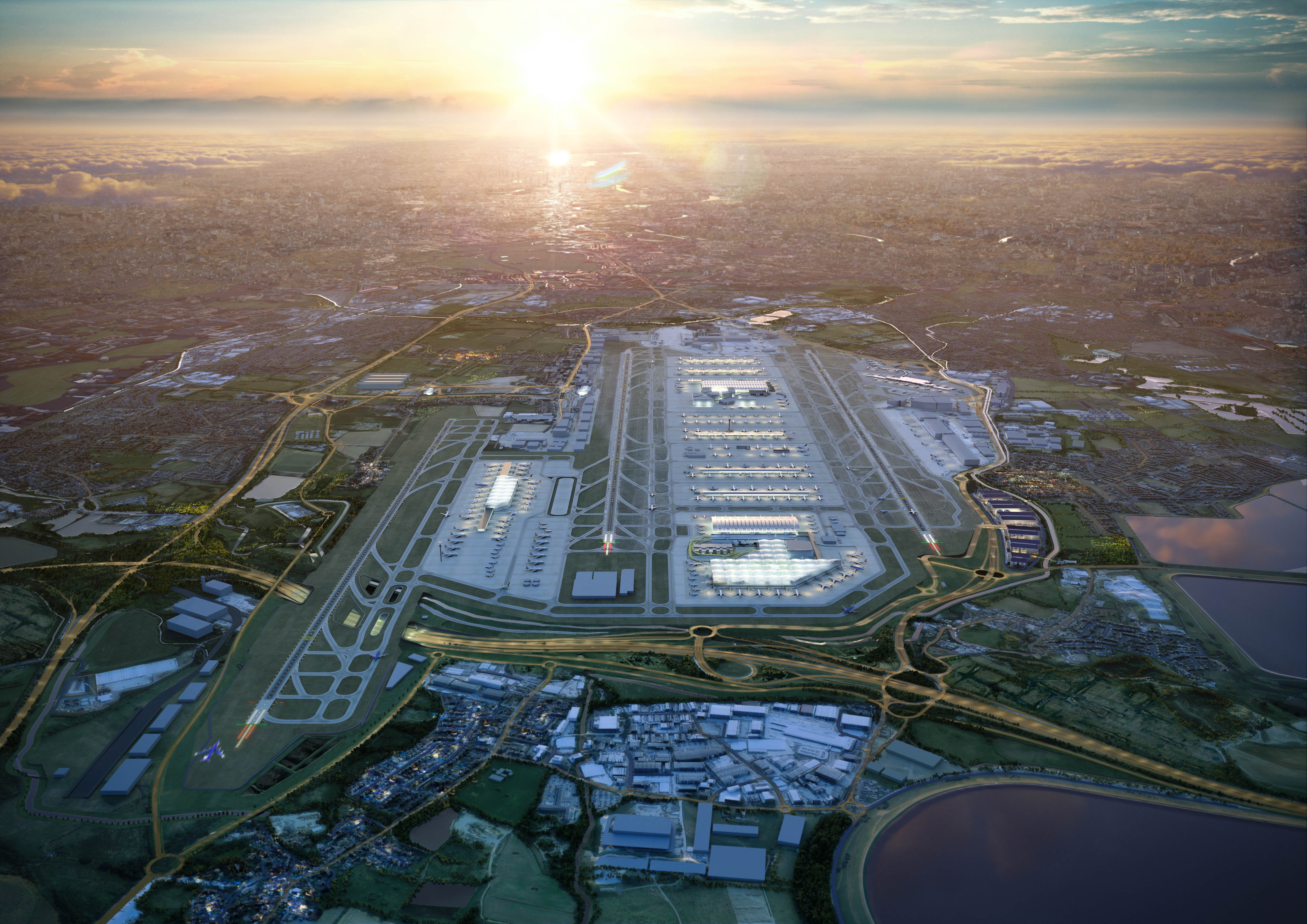The UK Government backed Heathrow’s expansion with the Chancellor announcing the government’s support for a third runway on January 29, 2025.
The expansion is part of the government’s set of reforms to kickstart economic growth and driving up living standards in the country. The chancellor of the exchequer Rachel Reeves said the government will move swiftly to review the airports national policy statement (ANPS), which will be the foundation for granting approval of the third runway.
“A third runway at Heathrow would unlock further growth, boost investment, increase exports, and make the UK more open and more connected as part of our plan for change,” said Reeves.
The third runway would generate over 100,000 jobs in the local area as well as allowing for lower fares and greater choice for passengers.
Reeves added: “The case is stronger than ever because our reforms to the economy – like speeding up our planning system, and our strengthened plans to modernise UK airspace – mean the delivery of this project is set up for success.”
Transport secretary Heidi Alexander said in a statement that Heathrow is “running at nearly full capacity” and, as such, is “limiting” the UK’s ability to “compete with major European hubs and holding back growth”. She added that the expansion could “inject billions” into the British economy.
Heathrow CEO Thomas Woldbye said Reeve’s comments mark a “bold, responsible vision the UK needs to thrive in the 21st century”.
Woldbye said: “A third runway and the infrastructure that comes with it would unlock billions of pounds of private money to stimulate the UK supply chain during construction. Once built, it would create jobs and drive trade, tourism and inward investment to every part of the country. It would also give airlines and passengers the competitive, resilient hub airport they expect while putting the UK back on the map at the heart of the global economy.”
The industry has reacted mostly positively.
easyJet CEO Kenton Jarvis stated: “Expansion at Heathrow will provide consumer and economic benefits and represents a unique opportunity for easyJet to operate from the airport at scale for the first time and bring with it lower fares for consumers.”
Additionally, Virgin Atlantic said the current economic model for Heathrow is not fit for purpose, with it being a critical infrastructure to the UK as the country’s only hub airport. A spokesperson for the airline said Heathrow is the “world’s most expensive airport with a service that falls short”.
According to Cirium, 2024 was the busiest ever year for flights at Heathrow with over 480,000 scheduled departures and arrivals throughout the year, making it the ninth busiest airport in terms of scheduled flights. The airport also had a record number of available seats to and from the airport with over 104 million scheduled seats in 2024, which would make it the fourth busiest airport globally when looking at available scheduled seats.
Around 75% of UK long haul flights fly from Heathrow, according to Alexander.
“We are supportive of growth and expansion at Heathrow, if, and only if, there is fundamental reform to the flawed regulatory model to ensure value for money for consumers, affordability for UK plc and support a competitive UK aviation industry,” the Virgin spokesperson concluded.
Voicing scepticism, Ryanair's vocal boss Michael O'Leary claimed Reeves was “trying to distract people by floating a third runway at Heathrow (or a second at Gatwick)” from the government's decision to raise air passenger deputy (APD) taxes by £2 per passenger. O'Leary urged Reeves to scrap the tax if she is “serious about growth”. He added that abolishing the tax would make it more competitive with other European countries with more immediacy, adding that third runway “won't deliver till 2030 or 2040”.
The UK Civil Aviation Authority (CAA) chief executive Rob Bishton said it is important that the UK aviation sectors remain safe and grows in a “responsible way”. He added that the authority will work with the UK government and aviation sector.
AirportsUK also welcomed the announcement, with its chief executive Karen Dee calling it an “enormous contribution to the economy”. She added: “Expanding capacity will support growth in all these areas and will not come at the expense of our sustainability goals.
“New, cleaner fuels, more efficient and quieter aircraft, decarbonised airport operations and modernisation of our airspace will all ensure aviation is able to meet its obligations, alongside growth.”
Dee added that the expansion will greatly support the air freight cargo sector in the UK, allowing for greater transport of goods and opening opportunities for new customers. FedEx Europe believe the expansion is a “step in the right direction” for the UK.
FedEx Europe manger director ramp and gateways Alun Cornish said: “To fully realise its potential, it’s crucial that expansion plans include provisions for cargo growth alongside passenger flights. The ability to efficiently import and export goods is essential for UK economic growth, so it's vital that cargo forms part of the UK’s future airport strategy.”
Around 60% of UK air freight goes through Heathrow. Air freight also represented around 57% of the UK’s non-EU exports by value in 2023.
Unite the union also welcomed the decision, stating it “should boost highly skilled, well-paid, and unionised jobs”. However, the union did warn that the government will need to develop a coherent industrial strategy to sustain the growth plans.
The government is inviting proposals for the Heathrow expansion to be brought forward by this summer.
Alexander is expected to make a decision on expansions plans at Gatwick and Luton “shortly”. She also confirmed that the department of transport will invest £63 million over the next year for advanced fuels fund, which will support sustainable aviation fuel (SAF) producers in the UK.

